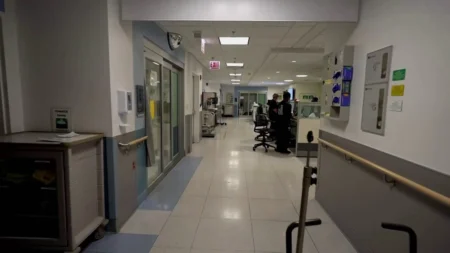Gonorrhea vaccine England program begins as the world’s first effort to fight the rising cases of this common sexually transmitted infection. This new vaccine drive aims to stop the spread of gonorrhea and fight germs that no longer respond to antibiotics. The British news site The Guardian reported this major health step.
The vaccine will not be given to everyone at first. It will focus on men who have sex with men or on bisexual men. These men often have many partners or a history of infections. So, they are at higher risk.
In 2023, over 85,000 gonorrhea cases were found in England. This is the highest number since 1918. Experts say some bacteria that cause gonorrhea do not get killed by antibiotics. This makes it harder to treat.
The vaccine is called 4CMenB. It is already used to fight a serious illness called meningococcal disease. This disease can cause meningitis or blood infection. Children get this vaccine at 8 weeks, 16 weeks, and at one year old as a normal shot.
Dr. Amanda Doyle works for the UK’s National Health Service (NHS). She said that starting this vaccine for gonorrhea is a big step. It will help protect people and stop the infection from spreading. It will also slow the rise of hard-to-treat germs.
People who can get the vaccine will be told soon. The shots will start on August 1. Local health clinics will give the vaccine. At the same time, people can get vaccines for monkeypox, HPV, and hepatitis A and B.
Dr. Doyle said NHS teams are working fast to make this program happen.
Gonorrhea is the second most common bacterial infection spread by sex in the UK. Signs include green or yellow discharge, pain when peeing, and pain or discomfort near the anus. Women may feel pain in the lower belly or have bleeding between periods. But many people do not have any signs at all.
The 4CMenB vaccine has a protein from a germ called Neisseria meningitidis. This germ causes meningococcal disease. It is very close in genetics to Neisseria gonorrhoeae, the germ that causes gonorrhea.
A study by the Joint Committee on Vaccines and Immunisation (JCVI) showed the 4CMenB vaccine works against gonorrhea. It is about 33% to 42% effective. This means it lowers the chance of infection but does not stop it fully. Still, JCVI says the vaccine helps because past infection may give some small protection.
UK Health Secretary Ashley Dalton asked people to take the vaccine. She said it is very important. It will protect people and fight the growing threat of germs that resist medicine.
She said the program will help those at most risk. It can lower infection rates of a hard-to-treat disease. This could stop many cases in the next years.
Richard Angel is the CEO of Terrence Higgins Trust, a British charity. He said the vaccine is a “gamechanger.” He said it could cut new gonorrhea cases by 40%.
This new vaccine program is a big move for public health. It fights a disease that is rising and getting harder to treat. As antibiotics fail, vaccines like 4CMenB give hope. They can make sex safer and stop the spread of gonorrhea.







